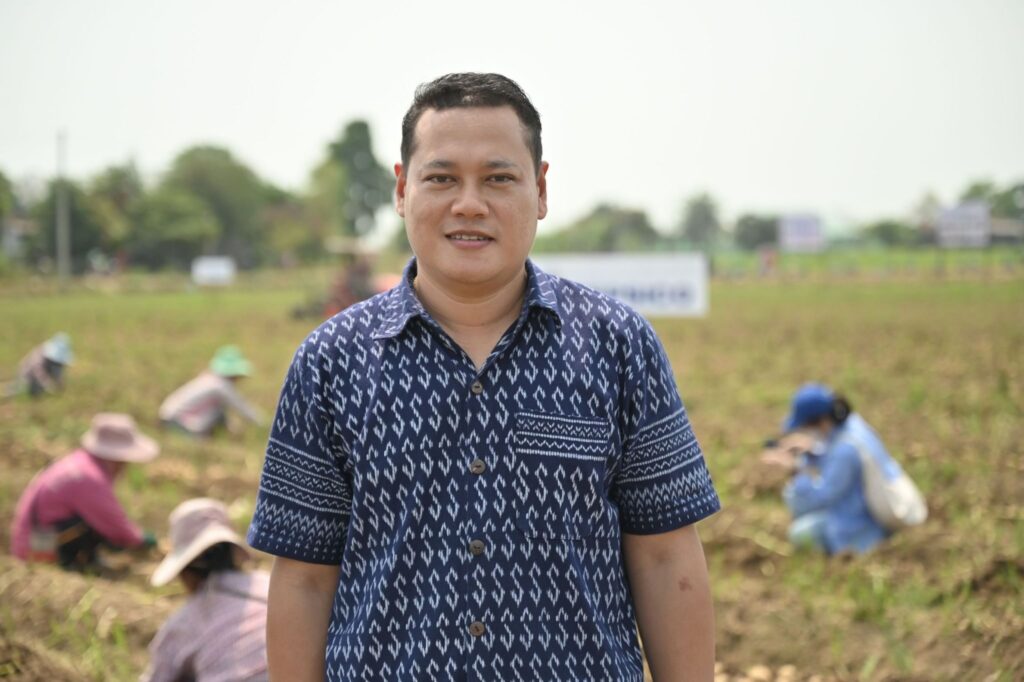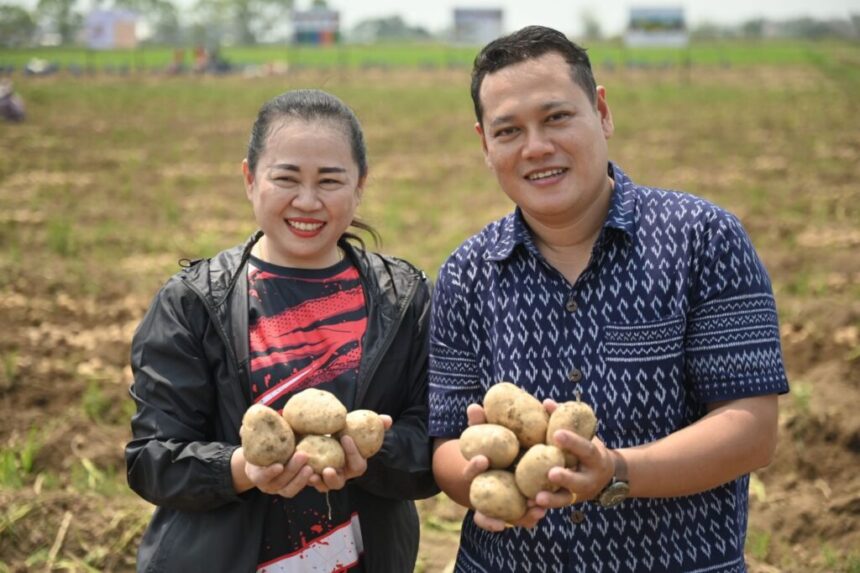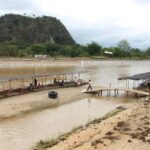Farmers in Chiang Rai have struck gold, finding that potatoes are more profitable than other crops they can grow. The food industry requires large amounts of potatoes to produce snack products.
PepsiCo, a global leader in the snack sector, owns the top-selling Thai snack brand, “Lay’s.” The company supports over 5,800 farmers in Thailand, helping them cultivate potatoes across more than 38,000 rai in 10 provinces, including Chiang Mai, Chiang Rai, Phayao, Lamphun, Lampang, Mae Hong Son, Tak, Phetchabun, Sakon Nakhon, and Nakhon Phanom.

Potatoes thrive in cooler climates, growing best in temperatures between 15 and 18 degrees Celsius. When temperatures rise above 21 degrees Celsius, the stems grow faster, but the tubers are fewer, decreasing the overall yield.
For optimal growing conditions, potatoes are typically planted in areas at least 800 meters above sea level, where temperatures remain cool enough to allow proper tuber development.
Consistent water supply is essential for potatoes. However, water requirements depend on the growth stage. Only small amounts of water are necessary during the early growth period to help germination. Excessive water during this phase can cause the tubers to rot.
As the plants grow, water needs increase, reaching their peak when the soil is fully covered.

However, the potatoes may develop abnormally if watering is inconsistent when tubers form. Traditionally, farmers watered crops by allowing water to flow along furrows, but this often led to issues like poor skin quality or increased risk of rot. Two weeks before harvesting, watering should stop entirely to ensure the tubers remain healthy.
Recognizing water as a critical factor in potato farming, PepsiCo in Thailand has collaborated with local partners to equip Thai farmers with skills to adapt to changing climate conditions in Chiang Rai.
This includes training on soil improvement, pest and disease management, and efficient irrigation methods like drip systems, which are particularly effective for potatoes. Drip irrigation ensures consistent water delivery while reducing waste and operating costs.
PepsiCo has also established 19 model farms, working directly with farmers to share knowledge on sustainable potato farming. These farms demonstrate techniques for growing potatoes as a post-rice crop under a contract farming agreement, ensuring guaranteed purchase prices.

One of these farmers, 43-year-old Mr Anuwat Phrommi (above image), serves as the Deputy Mayor of Tambon Koh Chang in Mae Sai District, Chiang Rai Province. Over the past seven years, Anuwat has cultivated potatoes on his 30-rai farm following PepsiCo’s sustainable farming guidelines.
Initially, Anuwat planted potatoes on just two rai, using traditional furrow irrigation. This method yielded over 3,000 kilograms per rai but required more labour and time. Inconsistent watering also resulted in uneven crop quality, and heavy rainfall increased the risk of rot.
With PepsiCo’s support, Anuwat transitioned to a drip irrigation system. This change increased his average yield to 4.8 tons per rai and boosted profits to 25,000 baht per Rai. The system also reduced water use by 40%, labour costs by 23%, and overall watering time by 50% while increasing product value and starch content.
After the rainy season, Anuwat avoids burning straw. Instead, he buries crop residues to enrich the soil. He begins planting potatoes in November and harvests them from early February.
Workers dig up the potatoes during harvest and sort them into quality grades. Premium potatoes are sold to PepsiCo for 11 baht per kilogram, while smaller or lower-quality potatoes are sold at local markets for 3 baht per kilogram.
Some are stored for use as seed potatoes in the following year.
Related Chiang Rai News:
Chiang Rai Highway’s Completes Chiang Khong-Thoeng Bypass

Geoff Thomas is an award winning journalist known for his sharp insights and no-nonsense reporting style. Over the years he has worked for Reuters and the Canadian Press covering everything from political scandals to human interest stories. He brings a clear and direct approach to his work.














